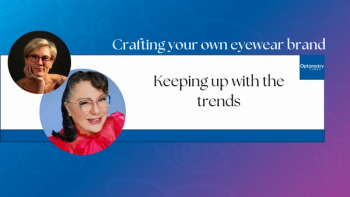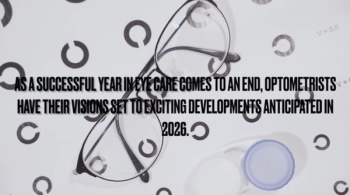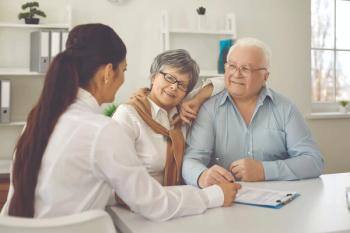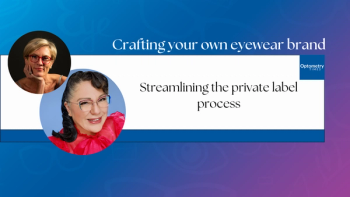
OD Q&A: Glenda B. Secor, OD, FAAO
When I got my first pair of contact lenses when I was in high school, I thought they were wonderful. Now, they have studies that talk about self-esteem and contact lenses and what a great difference they can make in a young person’s life. But I think I was representative of that philosophy because I thought my contact lenses were wonderful. It made a lifelong impression on me, so that’s what I wanted to do.
Where did you grow up?
Northern Indiana. I live in southern California now, but I grew up in Indiana. My husband and I were college sweethearts. We did undergrad at Purdue together. I went on to optometry school at Indiana University, he graduated from Purdue and moved to southern California for a job opportunity, and I followed him out here. So I followed a man to California and that was 37 years ago.
What do you do in your spare time?
Travel. Love to travel and see the world. We’re going to South Africa, and we are going to be in three game preserves and hopefully see lots of interesting things and have a great time.
Why contact lenses?
My story is I’m fairly myopic. When I got my first pair of contact lenses when I was in high school, I thought they were wonderful. Now, they have studies that talk about self-esteem and contact lenses and what a great difference they can make in a young person’s life. But I think I was representative of that philosophy because I thought my contact lenses were wonderful. It made a lifelong impression on me, so that’s what I wanted to do.
Some weeks ago, 12 people were arrested in California for selling illegal contact lenses.
Yeah, it’s really sad. It’s very much abused. Part of my AOA responsibilities is we’re really looking at illegal delivery sources of contact lenses and trying to educate the public as to why that it is such a bad idea. Things can go catastrophically wrong when they get contact lenses that are unsupervised. So, we’re really trying to educate the public as to why that behavior is the wrong thing to do.
What attracts you to leadership within organized optometry?
We’re very, very lucky-optometry is a very small profession. To be able to call one of my colleagues who has written a textbook or has an expertise that I may need some advice on. Having been active, going to meetings, and being in a position of leadership, I know these people by first name. And if I call them, they’ll take my call. If I hadn’t been active, I would never have the friends and the networking abilities that come with being active in organized optometry. So, it’s made me a better practitioner, it’s opened doors for me professionally, and I can travel all over the world and know somebody there who I can go see or if I need any help, I know people who I can call. It’s made the profession more entertaining and more exciting to have colleagues who are friends rather than competitors.
What do you hope to accomplish?
I think I’ve changed things, I think I’ve made optometry better, I think I’ve improved contact lenses by the leadership roles that I’ve had. And we’ve moved the profession forward with some of the initiatives that came under my leadership.
Why don't more private practice ODs get involved?
Couple of reasons. I think part of it’s generational, and younger practitioners are less driven for the greater good; they’re more driven for the personal gain. I have two children. You know, there’s no question that being a working mom is a challenge, and having a family does make it tougher to volunteer. But, you’ve got to look past the immediate time constraints, and it’s only gotten better. In the early days of my volunteering, we didn’t have Internet, we didn’t have cell phones, and we didn’t have conference calls. It was all snail-mail or when we got together at meetings to get things accomplished. I think we were less effective. We have so many tools now that make the volunteer time that I spend more effective. A lot of it is done on my lunch hour or between patients, so the commitment is probably less now than it was early on because we have more tools now to communicate and have things happen faster because of our ability to impact change quicker.
Has your leadership with Women of Vision changed your perspective on leadership, at all?
I don’t know if it’s changed my perspective on leadership. I think it’s been an area in which we’re trying to get more women active. It is a tough nut with families, professions and trying to see the bigger picture of why you will grow as both a person and a professional by the friends you make and the acquaintances that will expand opportunities farther than just seeing patients in an exam room. We’re trying to educate the young women to know that there is a tremendous benefit from being active early and becoming more of a role model. Those who get it are just blossoming beautifully and really have done well.
Do you have any regrets?
Probably that I didn’t spend enough time with my children-I have adult children-I didn’t go to all of their activities. I couldn’t be a room mom, you know. There were things I just couldn’t do because of my career. In talking to them now, I’ve said “I really think you’re the ones that I missed out on, I didn’t go to all the stuff that you had on. I had to be more selective in the events that I went to.” They’re good people and are successful. I do think that they see me as a role model, especially my daughter. You can be active, have a family, do those things, and be happy.
What's something your colleagues don't know about you?
I’m a certified scuba diver. I don’t do it often. The Great Barrier Reef is unbelievably beautiful. Everything else pales in comparison. The things you see and the variety of what’s there.
What is the best way to serve the profession of optometry?
I think being a good practitioner and also embracing change. The profession is moving forward. If you’re able to take advantage of the strides we have -legislatively, new lenses, and we have such wonderful tools now to address problems that 5 years ago we couldn’t address or couldn’t do it efficiently. With some of these things that you’re changing lives. I’m having a ball with scleral lenses; I’m refitting a lot of my cones. It’s been really fun to have those patients do better.
What is the craziest thing you've ever done?
Probably night diving with sharks. It’s a whole different world at night in the ocean. About four or five years ago on a dive trip to Australia, we did two night dives. Night diving with sharks was an amazing experience. White tip reef sharks and black tip reef sharks…we were not a threat to them, and they were not a threat to us. But the life that you see at night-we were in the same location, diving day and night, and it is an incredibly different experience.
Newsletter
Want more insights like this? Subscribe to Optometry Times and get clinical pearls and practice tips delivered straight to your inbox.













































.png)


